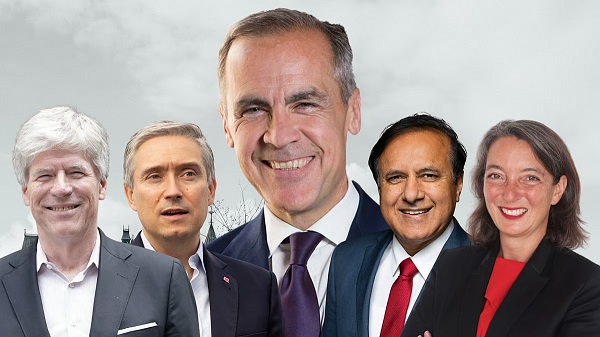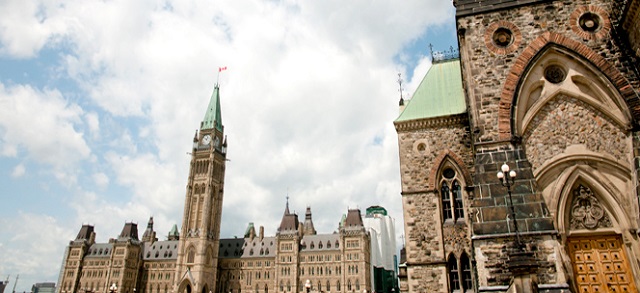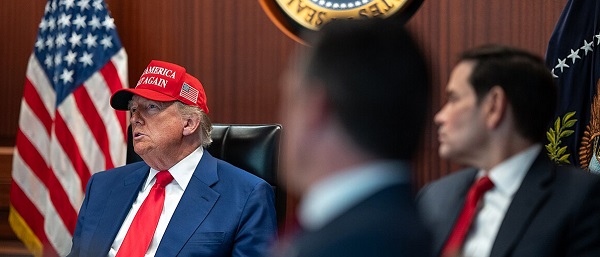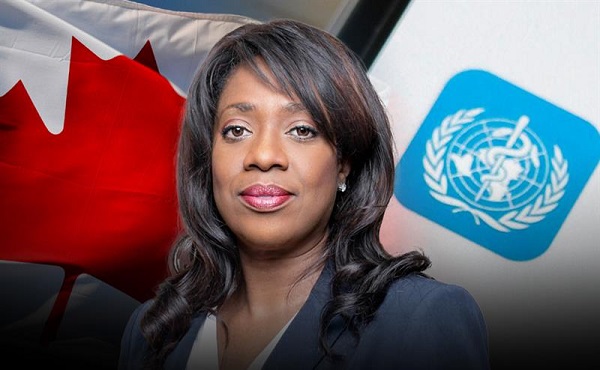Business
The Liberal war on our cost of living lives on


Well, the election is over, and it turns out that I was right to be sceptical of the polls. Polling which showed collapsing support for the Conservative Party, which I said over and over didn’t track with what I was seeing on the ground, was clearly wrong. In fact, the Conservative Party increased their share of the vote by more than 7 points, breaking 40% for the first time since 1988, while picking up 23 seats in parliament.
That kept the Liberals to a minority government — something the pollsters were definitely not predicting — and they only did as well as they did because the Bloc Québécois lost ground and the NDP were absolutely decimated.
For this we have Donald Trump to thank, and his unprecedented intervention in our election. Not to mention Canadian boomers, who as a group ranked Trump as the most important issue in this election, and “Making Canada a better place to live” as their least important issue, just behind “Growing the Economy” and making life more affordable.
They’ve made their money, after all. They’ve built up tremendous equity in their homes. And it just made them feel good to vote in a way that they thought would make Donald Trump mad. (Not that it did.)
We are now seeing a rising generation of younger adults who will be the first to lose ground as compared to their parents since the Great Depression. And why is that? Because the Baby Boomers decided to vote to reward those politicians whose policies have been, and will continue to be, a direct assault on the Canadian cost of living.
Carney’s government will double down on the worst policies of the Trudeau era. He is, after all, the Apostle of Net-Zero.
That means doubling down on carbon taxation, especially in the form of the Industrial Carbon Tax, which will hurt existing businesses and discourage others from getting off the ground. And if he sees an opportunity to go back to charging the Consumer Carbon Tax — remember that it remains on the books — he will do that as well.
It also means continued electric vehicle mandates. Many Canadians remain ignorant of the fact that the Trudeau Liberals banned the sale of new internal combustion engine (ICE) vehicles, beginning in 2035, just ten years from now. It took some prodding, but the Conservatives vowed to scrap that mandate.
Now it will remain in effect, and that means higher priced gas-and-diesel driven cars in the near term, as Canadians start to process the fact that they won’t be able to buy them soon. It will mean eventually being forced to buy even more expensive EVs and, if nothing changes, without government support, as the federal EV subsidy program ran out of money months ago.
Meanwhile, prepare for every story about an auto company bailing on commitments to build electric vehicles in Canada to feel like a crisis. Those agreements were negotiated at a time when decision makers assumed that Donald Trump would lose his second bid for the White House, and Americans would have EVs forced on them as well.
In that climate, it seemed like a great idea to accept the mountains of taxpayer dollars being offered to automakers by Justin Trudeau and Doug Ford. But without the American market, doing so makes much less business sense. Even with Doug Ford bellowing that he’s going to “hold them accountable” and force them to “continue manufacturing automobiles here in Ontario!”
And it further means that the Trudeau government’s war on pipelines will now become the Carney government’s war on pipelines.
Remember, while campaigning just a few weeks ago, how Carney went to Edmonton and proclaimed his intention to:
Make Canada “the world’s leading energy superpower,”
Invest in our “natural strengths and ensure our economic sovereignty,” and
fast-track “projects of national interest,”
while acknowledging that,
“any major energy project that comes from this great province is going to pass the boundaries of other provinces?”
His clear implication was that he intended to change course from his predecessor, to facilitate the building of pipelines, perhaps to revive Energy East, and to do so even over the objections of Quebec.
Suffice it to say, we didn’t believe a word of it. And now we see we were right not to do so, as we’ve just seen two of Carney’s ministers — Steven Guilbeault and Dominic LeBlanc — throw cold water on the idea that the Carney government would support new pipeline projects.
That’s because the activists who continue to run our country would prefer the pat on the head they get from the Davos brigade than to support the backbone of our economy, the natural resource sector, upon which Canadian jobs, energy affordability, and our overall cost of living rests.
All this means, of course, is that our work is not done. Our fight to protect the Canada we all know and love, where regular people can do honest work, buy a house, raise a family and live comfortably, goes on.
As disappointing as the outcome of this election was, it is just a setback. More and more people are hearing our message. We’re already seeing signs of buyer’s remorse among Carney voters. And, to put it bluntly, if something can’t continue on one way forever, it won’t. Which is to say, we’re going to have to change course sometime. The sooner, the better.
So, to borrow a phrase, Elbows Up.
Dan McTeague is President of Canadians for Affordable Energy.
Business
Capital Flight Signals No Confidence In Carney’s Agenda

From the Frontier Centre for Public Policy
By Jay Goldberg
Between bad trade calls and looming deficits, Canada is driving money out just when it needs it most
Canadians voted for relative continuity in April, but investors voted with their wallets, moving $124 billion out of the country.
According to the National Bank, Canadian investors purchased approximately $124 billion in American securities between February and July of this year. At the same time, foreign investment in Canada dropped sharply, leaving the country with a serious hole in its capital base.
As Warren Lovely of National Bank put it, “with non-resident investors aloof and Canadians adding foreign assets, the country has suffered a major capital drain”—one he called “unprecedented.”
Why is this happening?
One reason is trade. Canada adopted one of the most aggressive responses to U.S. President Donald Trump’s tariff agenda. Former prime minister Justin Trudeau imposed retaliatory tariffs on the United States and escalated tensions further by targeting goods covered under the Canada–United States–Mexico Agreement (CUSMA), something even the Trump administration avoided.
The result was punishing. Washington slapped a 35 per cent tariff on non-CUSMA Canadian goods, far higher than the 25 per cent rate applied to Mexico. That made Canadian exports less competitive and unattractive to U.S. consumers. The effects rippled through industries like autos, agriculture and steel, sectors that rely heavily on access to U.S. markets. Canadian producers suddenly found themselves priced out, and investors took note.
Recognizing the damage, Prime Minister Mark Carney rolled back all retaliatory tariffs on CUSMA-covered goods this summer in hopes of cooling tensions. Yet the 35 per cent tariff on non-CUSMA Canadian exports remains, among the highest the U.S. applies to any trading partner.
Investors saw the writing on the wall. They understood Trudeau’s strategy had soured relations with Trump and that, given Canada’s reliance on U.S. trade, the United States would inevitably come out on top. Parking capital in U.S. securities looked far safer than betting on Canada’s economy under a government playing a weak hand.
The trade story alone explains much of the exodus, but fiscal policy is another concern. Interim Parliamentary Budget Officer Jason Jacques recently called Ottawa’s approach “stupefying” and warned that Canada risks a 1990s-style fiscal crisis if spending isn’t brought under control. During the 1990s, ballooning deficits forced deep program cuts and painful tax hikes. Interest rates soared, Canada’s debt was downgraded and Ottawa nearly lost control of its finances. Investors are seeing warning signs that history could repeat itself.
After months of delay, Canadians finally saw a federal budget on Nov. 4. Jacques had already projected a deficit of $68.5 billion when he warned the outlook was “unsustainable.” National Bank now suggests the shortfall could exceed $100 billion. And that doesn’t include Carney’s campaign promises, such as higher defence spending, which could add tens of billions more.
Deficits of that scale matter. They can drive up borrowing costs, leave less room for social spending and undermine confidence in the country’s long-term fiscal stability. For investors managing pensions, RRSPs or business portfolios, Canada’s balance sheet now looks shaky compared to a U.S. economy offering both scale and relative stability.
Add in high taxes, heavy regulation and interprovincial trade barriers, and the picture grows bleaker. Despite decades of promises, barriers between provinces still make it difficult for Canadian businesses to trade freely within their own country. From differing trucking regulations to restrictions on alcohol distribution, these long-standing inefficiencies eat away at productivity. When combined with federal tax and regulatory burdens, the environment for growth becomes even more hostile.
The Carney government needs to take this unprecedented capital drain seriously. Investors are not acting on a whim. They are responding to structural problems—ill-advised trade actions, runaway federal spending and persistent barriers to growth—that Ottawa has yet to fix.
In the short term, that means striking a deal with Washington to lower tariffs and restore confidence that Canada can maintain stable access to U.S. markets. It also means resisting the urge to spend Canada into deeper deficits when warning lights are already flashing red. Over the long term, Ottawa must finally tackle high taxes, cut red tape and eliminate the bureaucratic obstacles that stand in the way of economic growth.
Capital has choices. Right now, it is voting with its feet, and with its dollars, and heading south. If Canada wants that capital to come home, the government will have to earn it back.
Jay Goldberg is a fellow with the Frontier Centre for Public Policy.
Business
Budget 2025 continues to balloon spending and debt

The Canadian Taxpayers Federation is criticizing Prime Minister Mark Carney for ballooning spending and debt in Budget 2025.
“Budget 2025 shows the debt continues to spiral out of control because spending continues to spiral out of control,” said Franco Terrazzano, CTF Federal Director. “Carney needs to reverse course to get debt and spending under control because every dollar Canadians pay in federal sales tax is already going to pay interest charges on the debt.
“Carney isn’t close to balancing anything when he’s borrowing tens of billions of dollars every year.”
The federal deficit will increase significantly this year to $78.3 billion. There is no plan to balance the budget and stop borrowing money. The federal debt will reach $1.35 trillion by the end of this year.
Debt interest charges will cost taxpayers $55.6 billion this year, which is more than the federal government will send to the provinces in health transfers ($54.7 billion) or collect through the GST ($54.4 billion).
Budget 2025 increases spending by $38 billion this year to $581 billion. Despite promises to control spending in future years, Budget 2025 projects that overall spending will continue to rise by billions every year.
“Canadians don’t need another plan to create a plan to meet about cutting spending, Canadians need real spending cuts now,” Terrazzano said. “The government always tells Canadians that it will go on a diet Monday, but Monday never comes.
“And the government isn’t really finding savings if it’s planning to keep increasing spending every year.”
Budget 2025 commits to “strengthening” the industrial carbon tax and “setting a multi-decade industrial carbon price trajectory that targets net zero by 2050.”
“Carney’s hidden carbon tax will make it harder for Canadian businesses to compete and will push Canadian entrepreneurs to set up shop south of the border,” Terrazzano said. “Carney should scrap all carbon taxes, cut spending and stop taking so much money from taxpayers.”
-

 Business1 day ago
Business1 day agoTrump’s Tariffs Have Not Caused Economy To Collapse
-

 Alberta2 days ago
Alberta2 days agoCanada’s heavy oil finds new fans as global demand rises
-

 Daily Caller1 day ago
Daily Caller1 day agoTrump Reportedly Planning Ground Troops, Drone Strikes On Cartels In Mexico
-

 Daily Caller2 days ago
Daily Caller2 days agoNigeria Would Welcome US Intervention In Massacre Of Christians By Islamic Terror Groups
-

 Alberta20 hours ago
Alberta20 hours agoAlberta government’s plan will improve access to MRIs and CT scans
-

 Bruce Dowbiggin2 days ago
Bruce Dowbiggin2 days agoA Story So Good Not Even The Elbows Up Crew Could Ruin It
-

 Addictions2 days ago
Addictions2 days agoThe War on Commonsense Nicotine Regulation
-

 Censorship Industrial Complex2 days ago
Censorship Industrial Complex2 days agoPro-freedom group warns Liberal bill could secretly cut off Canadians’ internet access











